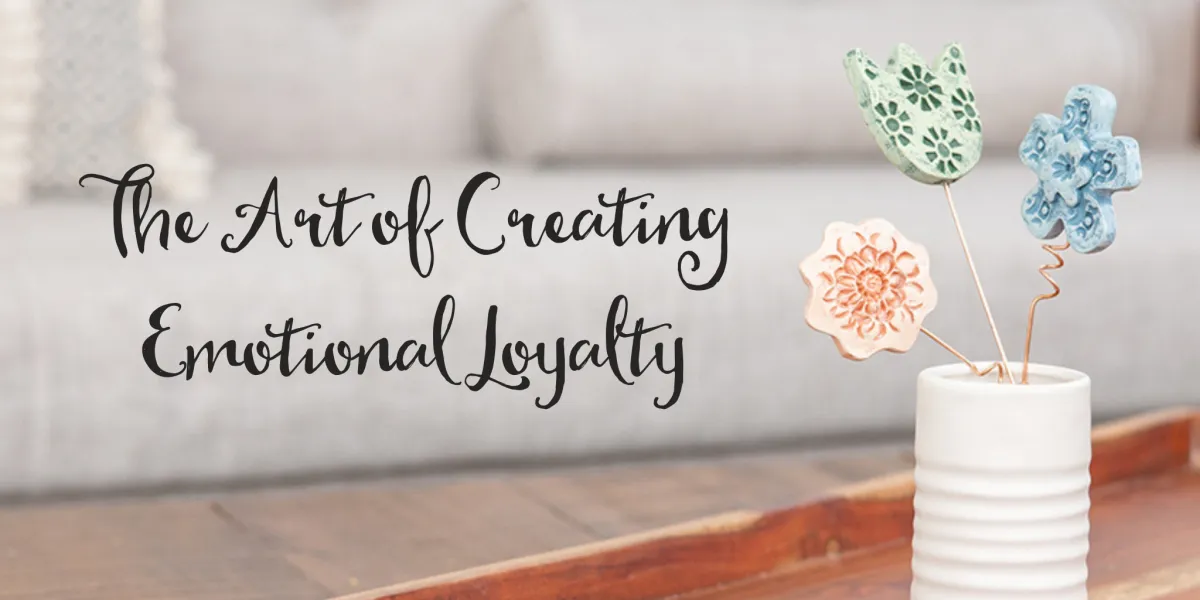
What Swimming Teaches Us About Team Relationships
In my latest video, I break down how swimming teaches us the importance of these relationship-building efforts and the specifics of what we as leaders need to nurture with our teams.
Holiday Gift Insights - What Everyone Else Is Doing
In an effort to simplify the decision-making process, we're sharing some of the trends we've seen with gifting over the years. We're even sharing our best seller and why that gift had such success.
What Makes A Successful Holiday Gift? The Travel Bag Edition
Last year we had the opportunity to work with one of our clients in the travel and tourism space to design an experience that delivered their highest engagement yet.

Care as a Profitable Business Strategy
Many businesses recognize the importance of showing care, yet struggle to make it a consistent, strategic priority. When care is treated as an afterthought rather than an intentional practice, opportunities for deeper connections and greater profitability are lost.
Our 2025 research shows:
96% of business leaders believe expressing care toward business contacts increases profitability to some degree.
90% say it’s extremely or very important to foster a culture of care within their organization.
70% rank showing care as one of their top 1-3 priorities.
Yet, despite this widespread agreement, most companies still struggle to make care a strategic priority. As is revealed in our research finding that only 34% of companies have developed and documented a direct engagement strategy to consistently express their care and appreciation; 26% say it’s not documented.
Care often remains reactive (responding to events or crises) rather than proactive (integrating care into daily business interactions). And when businesses limit their care efforts to certain relationships, clients over prospects, employees over partners, they miss opportunities to build a network of loyal advocates.
The companies that truly master care don’t just improve relationships, they increase revenue, retention, and brand trust.
Why Expressing Care is a Business Must
Care isn’t just about making people feel good. It’s a measurable growth strategy.
According to Relationship-First Strategic Engagement (and principles of social psychology), trust-based relationships are built when people feel:
Understood – "You get me and what matters to me."
Validated – "You see why this is important in my world."
Supported – "You have my back and want the best for me."
When businesses make contacts feel valued, recognized, and supported, they create:
1. Higher Retention and Lifetime Value
Clients stay longer and spend more when they feel personally valued. (69% respondents say receiving gifts from a current vendor would make them at least probably likely to continue working with them)
Studies show emotionally engaged customers have 52% higher lifetime value than merely satisfied customers.
2. Increased Referrals and Organic Growth
People refer businesses that make them feel special. (Most (70%) respondents say receiving gifts from a current vendor would definitely or probably make them recommend the vendor to someone else.)
When appreciation is consistent, referrals happen naturally. No need to ask.
3. Faster Sales Cycles and Higher Close Rates
Prospects buy faster from businesses that build trust before the sale.
Expressing care early in the buyer’s journey reduces hesitation and accelerates decision-making. (Receiving a gift from a prospective vendor would make respondents pay more attention to their content or communications - 59%)
4. Competitive Differentiation and Brand Reputation
Companies that consistently express care stand out in a crowded market.
A culture of care builds an unbeatable competitive advantage.
The Gaps in How Businesses Show Care
Despite recognizing the value of care, many businesses still fall short in execution.
Care is mostly directed at current clients (84%) and employees (70%), but not as frequently common to nurture prospects (64%) or strategic partners (56%).
Only 30% of employees can express care freely. Most need company permission first or have to follow company guidelines.
Care seems to remain transactional or reactive, often tied to a sale, renewal, or company-wide initiative, rather than a genuine, ongoing engagement strategy.
The Problem with Transactional Care
Most businesses “express care” through:
Gratitude (73%)
Sharing helpful resources (67%)
Offering support in tough times (60%)
Scheduling check-ins (60%)
Giving appreciation gifts (58%)
While these efforts aren’t wrong, they often lack depth, personalization, and consistency.
Reactive vs. Proactive Care
Reactive: "I saw you were struggling. Let me know if I can help."
Proactive: "I know this is a busy season. I sent something to make things easier for you."
Business-Level vs. Personal-Level Care
Business: "We appreciate your business and value your feedback."
Personal: "I remember you mentioned your son starting college. How’s that transition going?"
When care is too restricted, it feels like a corporate policy rather than an authentic connection.
How to Make Care a Competitive Advantage
1. Empower Employees to Express Care Naturally. Encourage spontaneous appreciation rather than limit care to official policies. Give employees the autonomy to recognize clients, partners, and colleagues at the moment they see an opportunity so that it is a timely interaction.
2. Expand Care Beyond Clients. Most businesses prioritize client care but neglect prospects and referral partners. When prospects feel valued before they buy, trust builds faster. Create a plan to nurture prospects on a regular basis throughout the year, by sharing resources you know would help them accomplish things that are important to them.
3. Balance Business and Personal. Companies often focus on work-related engagement but miss the personal side of interacting with their important contacts. You want to focus on acknowledging what’s important to people in their overall world, not just the transactional side of the relationship. That’s what creates the emotional loyalty that provides the most return.
4. Don’t Forget to Measure Your Engagement. When you express care and thoughtful acknowledgement, people engage with you. This should be tracked and measured just like revenue and retention. By understanding the various points of engagement an interaction, you start to see that other opportunities result from your nurturing, like referrals, speaking requests, collaborations and additional word of mouth marketing.
Reflect & Rebuild: 5 Key Questions for Leaders
To assess whether your business genuinely prioritizes care, ask:
Do we empower employees to express care freely, or is it restricted by company policies?
– True care should be spontaneous, not forced.Are we showing care equally to prospects, partners, and clients?
– If care is only directed at paying customers, relationships outside of transactions suffer.Is our care primarily reactive or proactive?
– Proactive care builds stronger relationships and helps you stand out.Are we balancing business-level and personal-level connectivity?
– If you only recognize people for their business role, the relationship remains transactional.Are we tracking engagement and sentiment as business metrics?
– Care should be measurable and strategic, not just a feel-good initiative.
Care is More Than a Nice Gesture. It’s a Profit Driver. Businesses that prioritize care as a strategy experience higher retention and client lifetime value.
The question is no longer “Does care matter?” The question is “Are you implementing it effectively?” If you need help evaluating your efforts, we’re always here to help. Join us for an upcoming Q&A session or schedule time to talk.
Address:
1500 S. Sylvania Ave #106
Sturtevant WI 53177
Phone:
414.243.8971

